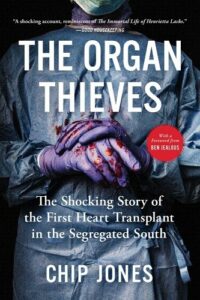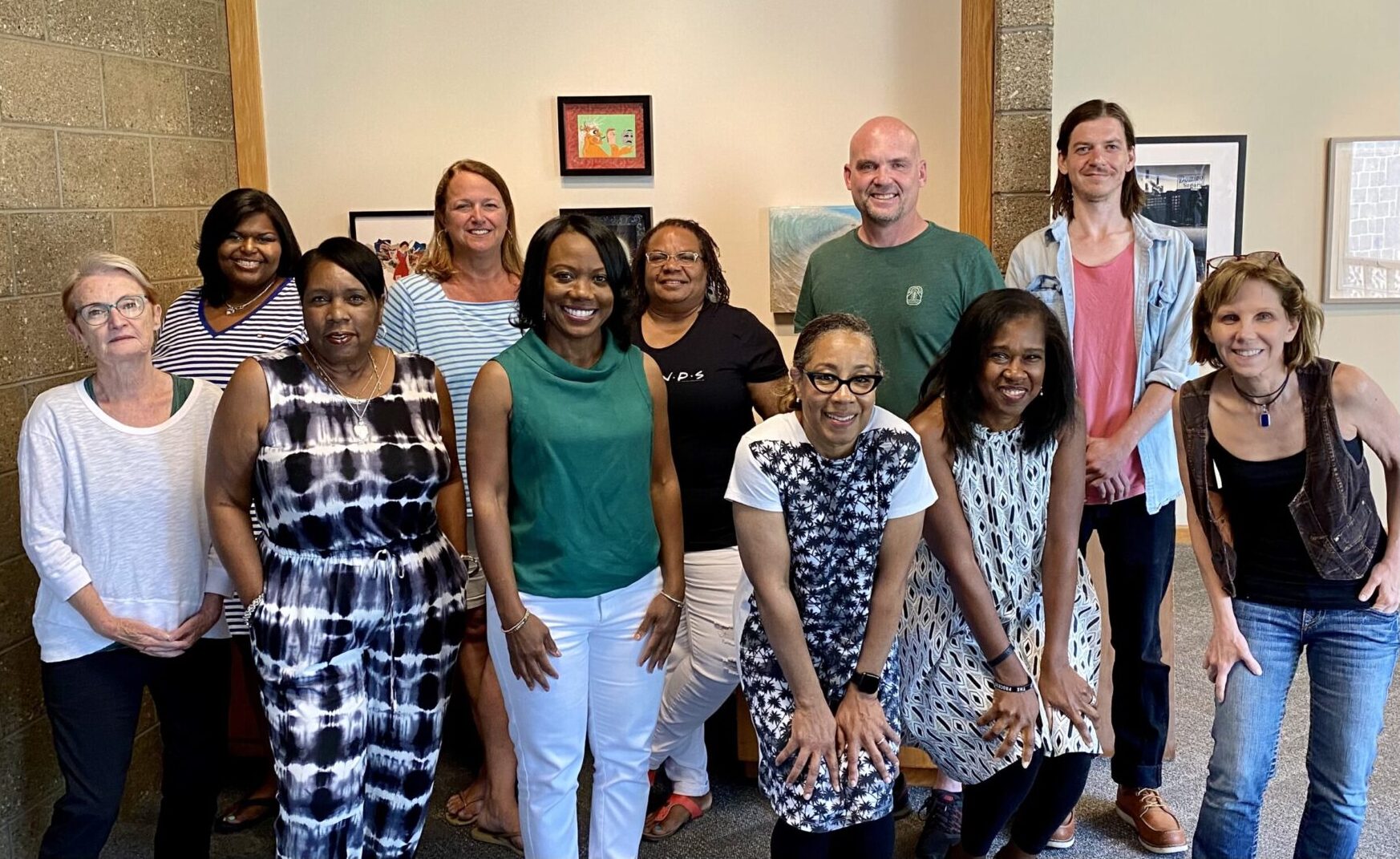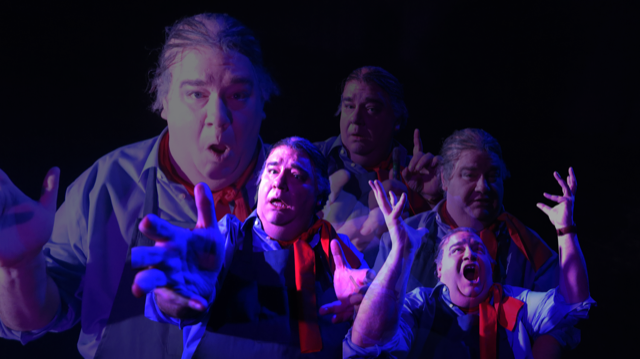 Chip Jones hopes his book The Organ Thieves: The Shocking Story of the First Heart Transplant in the Segregated South about Bruce Tucker, a Black factory worker who was the theoretical donor in the first heart transplant in Virginia in 1968, is making people think. Jones wants his work to encourage people to think about the importance of ethical practices and respect for the dignity of patients and families alike.
Chip Jones hopes his book The Organ Thieves: The Shocking Story of the First Heart Transplant in the Segregated South about Bruce Tucker, a Black factory worker who was the theoretical donor in the first heart transplant in Virginia in 1968, is making people think. Jones wants his work to encourage people to think about the importance of ethical practices and respect for the dignity of patients and families alike.
“As America confronts similar life-and-death decisions during the COVID-19 crisis, this seems as relevant today as it was back in the 1960s,” says Jones, a former reporter and magazine editor who was working at the Richmond Academy of Medicine when he heard about Dr. Richard Lower and Dr. David Hume, the surgeons who performed the first heart transplant in Virginia at the Medical College of Virginia. It’s also good “that today’s medical school students are hearing about the Tucker case, alongside other examples of ‘historical trauma’ caused by America’s health care system.”
Jones first heard the Tucker narrative – white doctors had removed the heart of a Black man in secrecy – in 2016. He began digging into the medical archives at VCU Health.
 “I really got a medical history education that included the plundering of the graves of deceased enslaved African Americans to supply bodies for anatomy classes, a gruesome practice that continued in Richmond at MCV until the dawn of the 20th century,” he says. “I was fascinated by the history, but as I learned more I was also horrified by the operation and also what I learned about the deep, dark past of the Medical College of Virginia.”
“I really got a medical history education that included the plundering of the graves of deceased enslaved African Americans to supply bodies for anatomy classes, a gruesome practice that continued in Richmond at MCV until the dawn of the 20th century,” he says. “I was fascinated by the history, but as I learned more I was also horrified by the operation and also what I learned about the deep, dark past of the Medical College of Virginia.”
Jones learned that former Governor L. Douglas Wilder played a key role in the Tucker story as Tucker’s family had retained him to represent them in a civil suit brought against the doctors and the hospital. As the author crafted the book, Jones knew Wilder could provide insights into the pain and grief experienced by Tucker’s family.
“As I continued my research, I tried to see things from the point of view of Mr. Tucker and his family,” Jones says.
Once Jones interviewed Wilder, he started working on a book proposal and signed a contract with Simon & Schuster in 2018. The Organ Thieves was released in August 2020.
Four Books and Counting
The Organ Thieves is the fourth book that Jones has written. His first three books were a trilogy about the United States Marine Corps — Boys of ’67: From Vietnam to Iraq, the Extraordinary Story of a Few Good Men; Red, White or Yellow? The Media & The Military at War in Iraq and War Shots: Norm Hatch and the U.S. Marine Corps Combat Cameramen of World War II.
A military brat, Jones lived all over the country growing up. His father, the late Lt. General William K. Jones, was a highly decorated Marine veteran of three wars. The elder Jones received the Navy Cross, Silver Star, Bronze Star, and the Purple Heart. His last command was Fleet Marine Force, Pacific.
“I never had a normal home in the sense that a lot of service brats moved around a lot,” Jones says. “But, moving around a lot shaped me.”
He experienced major moments in his family’s life, including the death of his brother due to a car crash and a variety of social issues over the years that also had impacts on him.
He met his wife Deborah in high school in Fairfax County and she eventually transferred to the University of Kansas, where Jones graduated from with a bachelor’s degree in English.
The couple moved to Virginia a couple of years after graduation and Jones got a job as a reporter for a paper in Blacksburg. “I never really trained as a journalist,” he says, adding he learned a lot on the job.
Later, as a reporter for The Roanoke Times, he was part of a team of journalists covering the strike of the United Mine Workers of America against Pittston Coal. The team was named a Pulitzer Prize finalist in 1990 for general news.
When he worked for the Richmond Times-Dispatch in the 1990s, he covered the tobacco industry. He began working on his first book in his trilogy series in 1999, and by 2010 he had finished the third book while he was working at Richmond Academy of Medicine.
A Love of Storytelling
Jones walks a fine line between his love for reporting and his love for storytelling. “I like writing about people and scene setting,” he says.
He enjoys the creative non-fiction genre because it is based on facts. “You take what you know and create the scene,” he says.
Currently, he is working on a podcast, One Square Block in Richmond, which focuses on the 12th and Marshall area. “The podcast is based on The Organ Thieves, and I will be a consultant to the project. It is being done by a Hollywood producer and it also has a film option if they want to make a movie or television project based on the book,” he says.
Jones is also working on a couple of books about growing up in the 1960s. One is a novel about growing up in the mid 1960s as a Marine brat and the other is a memoir. “They are passion projects because it’s hard to get those kind of books published,” he says.
A proud dad, Jones has two daughters and a son, all working in their chosen professions. He’s also a grandad to his two-year-old grandson Gabriel who lives in England with his mom and dad. Jones FaceTimes with Gabriel almost every day to stay connected.
“I love amusing a two-year-old,” Jones says. “I can be as silly as I want to be. Being a grandfather is priceless. It’s joyful.”







